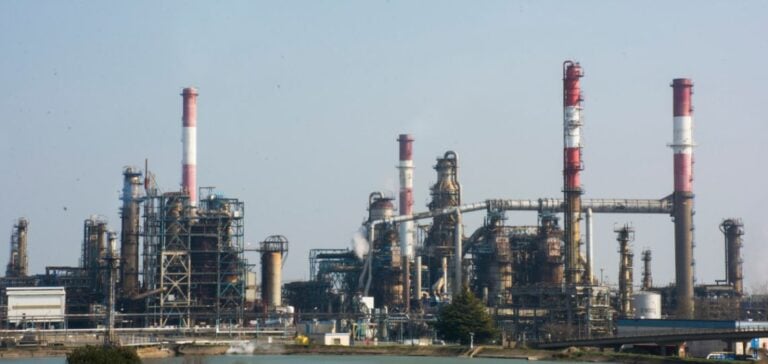An oil spill, detected Saturday evening in a pipeline at the TotalEnergies refinery in Donges, caused pollution in the Loire River. The Loire-Atlantique prefecture reported that the leak, caused by a 2 cm breach in a 30 cm diameter pipeline, created a visible sheen covering approximately 500 m² of the river’s surface. Authorities quickly deployed floating barriers to contain the pollution, though weather conditions complicated the operations.
The leak, identified at 10:50 PM, was halted by 1:40 AM Sunday, according to TotalEnergies. The company stated that additional intervention measures were completed at 8:50 AM on the same day. The flow of crude oil into the Loire ceased entirely at 3:45 AM, according to the prefecture. Specialized teams have been deployed to permanently seal the breach and prevent further leakage.
Environmental Impact Limited According to TotalEnergies
The amount of oil spilled into the Loire is estimated to be less than 15 m³. Preliminary analyses along the riverbanks detected no significant traces of hydrocarbons, and no abnormalities in air quality were reported. The prefecture also noted that the sheen could naturally dissipate under the influence of wind, eventually moving to the riverbanks.
However, authorities and TotalEnergies continue efforts to assess the full environmental impact of the incident. Containment measures remain in place, and teams are working to mitigate potential effects on the local ecosystem.
A High-Risk Seveso Site
The Donges refinery, classified as a high-threshold Seveso site, is the second-largest refinery operated by TotalEnergies in France, following the Normandy facility. It spans 350 hectares and employs 650 people. The site processes 11 million tonnes of crude oil annually, with a storage capacity of 2.2 million m³.
This incident recalls a previous spill in December 2022 when 700,000 liters of gasoline were leaked from the same site. These events raise questions about the safety of infrastructure and preventive measures at sensitive locations.
Local authorities and TotalEnergies state they are closely monitoring the situation and are committed to reinforcing safety measures to prevent future incidents.






















